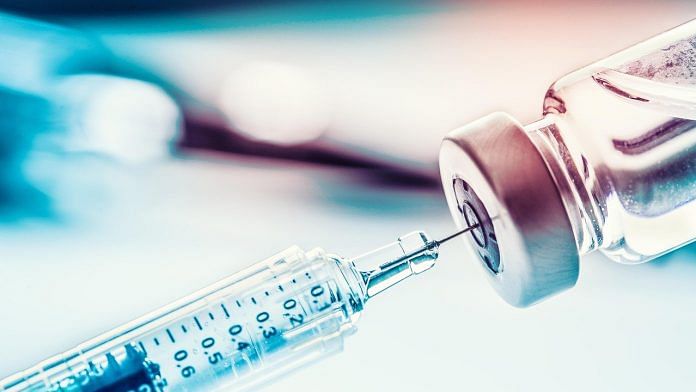New Delhi: Finance Minister Nirmala Sitharaman’s Budget 2021 announcement allocating Rs 35,000 crore for vaccinations for Covid-19 garnered much attention. But another key announcement, about a countrywide rollout of pneumococcal vaccine, ended up almost as a footnote.
Expansion of the programme for a vaccine against pneumococcal pneumonia beyond the five pilot states would save over 55,000 children’s lives each year. Significantly, the expansion is to be done entirely using indigenous vaccines.
In her Budget speech, Sitharaman had said: “The pneumococcal vaccine, a made-in-India product, is currently limited to only five states. It will be rolled out across the country. This will avert more than 50,000 child deaths annually.”
Also read: Vaccination averted 45% deaths due to 10 pathogens between 2000 & 2019 — Lancet study
India’s pneumonia burden
Pneumonia and diarrhoea are the two biggest causes of child deaths in India. The annual Pneumonia and Diarrhoea Progress report brought out by the International Vaccine Access Center (IVAC) at the Johns Hopkins Bloomberg School of Public Health, in its 2020 edition, estimated that 2,33,240 Indian children under five die due to pneumonia and diarrhoea each year — that is, around 640 children per day.
India has an annual birth cohort of 2.64 crore. According to UNICEF, the under-five mortality rate stands at 34 per 1,000 live births, which means close to nine lakh children die in India before they reach the age of five.
According to officials in the Ministry of Health and Family Welfare, 13 per cent of these deaths — over 1.15 lakh every year — are attributed to pneumonia. “Of those deaths, 50 per cent (above 50,000) are attributable to pneumococcal pneumonia,” said a senior official in the ministry.
Around the world, pneumonia continues to kill more children under five than any single infectious disease, claiming an estimated 8,00,000 children’s lives in 2018.
Five pilot states
In 2016-17, India rolled out the pneumococcal conjugate vaccine in five states — Himachal Pradesh, Madhya Pradesh, Bihar, Uttar Pradesh and Rajasthan — which account for almost half of India’s annual birth cohort.
Three doses of the vaccine are given to babies at 6 weeks, 14 weeks and nine months of age. The 2020 Johns Hopkins report also estimated that India’s immunisation coverage against pneumococcal pneumonia increased by 9 percentage points to 15 per cent in 2019 from 6 per cent in 2018.
Currently, the vaccines in these states are being given by GAVI, an international consortium of companies, donors and countries whose aim is to ensure equitable distribution of vaccines. Rough estimates suggest that for a countrywide rollout, India would need a total of 750 lakh doses of the vaccine.
Indigenous pneumococcal vaccine a recent development
When India first introduced the pneumococcal conjugate vaccine (PCV) into its universal immunisation programme, the vaccines came from two international companies, Pfizer and GSK. At that time, PCV was the costliest vaccine in the immunisation basket, at approximately $2.95 per dose. Other UIP vaccines are available for much less — the rotavirus vaccine costs $1.00 per dose;, the pentavalent vaccine $0.69 per dose; and the measles vaccine $0.308-0.318 per dose.
At that time, some estimates had put the cost of a countrywide rollout of PCV at Rs 1,000 crore.
In December 2020, the Pune-based Serum Institute of India launched Pneumosil, India’s first indigenous pneumococcal vaccine. The company had then said in a statement: “(The vaccine has been) developed through a collaboration spanning over a decade among Serum Institute of India, PATH and Bill and Melinda Gates foundation. This significant milestone is aimed at improving pneumococcal conjugate vaccine affordability and enabling sustainable access for low-and middle-income countries.”
The ministry official quoted above added: “The launch of the indigenous variant significantly changes the landscape. We are in talks about procurement.”
Also read: Indian vaccine makers excellent example for lower income countries, Gavi deputy CEO says



